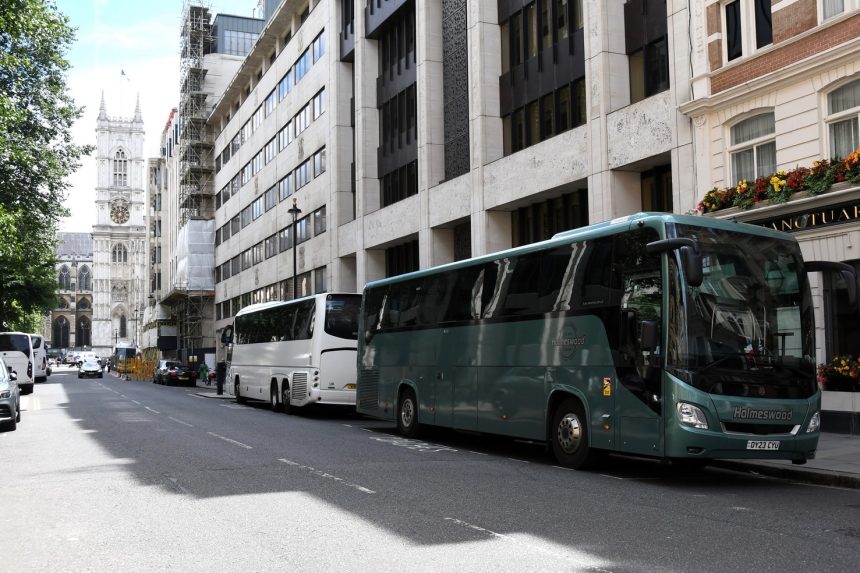In July 2023, routeone looked at the state of coach parking in central London. Operators and drivers were being reminded to act responsibly to ensure no further bays were lost. One year on, what has changed?
If anywhere sums up the state of coach parking in central London, Tothill Street could be it. Leading off Victoria Street opposite Westminster Abbey and threading its way a few hundred yards through to Broadway, Tothill Street is a good example of industry stakeholders working together.
In June 2023, routeone reported that Westminster City Council was threatening to remove coach parking bays in Tothill Street due to complaints from people living and working in the area over excessive engine idling. The coach industry had been put on notice.
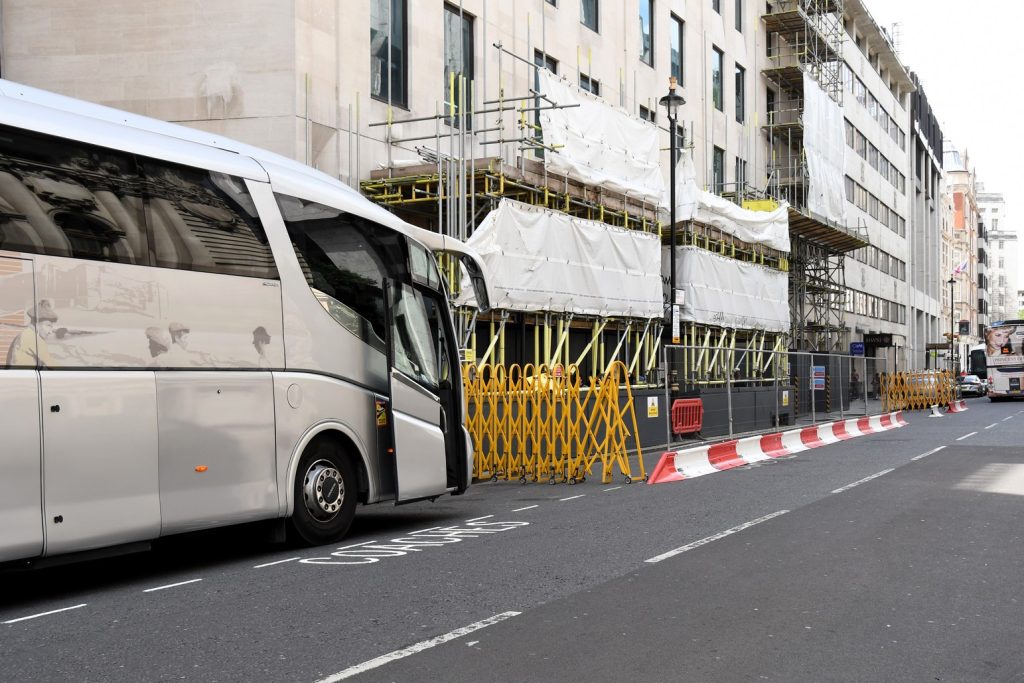
But this wasn’t the one-sided situation that description might imply. Ever since the Tourist Coach Action Plan was launched 11 years ago, and well before that, the coach industry trade bodies have engaged with Transport for London (TfL) and Westminster City Council (WCC).
Today, the Confederation of Passenger Transport (CPT), UK Coach Operators Association (UKCOA) and RHA Coaches (RHA) have regular meetings with TfL and WCC. A recent newcomer to the table is the Coach Tourism Association (CTA), bringing a coach tourism perspective to the wider, traditional discussion about operational issues.
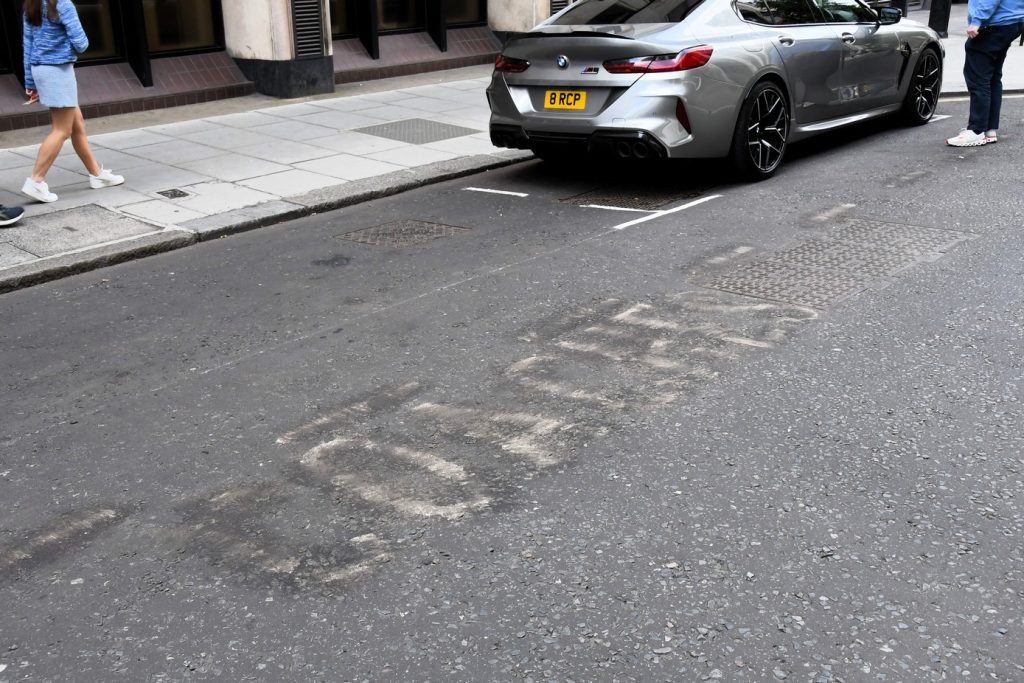
Payment for coach parking in London shows usage
The Tourist Coach Action Plan fell away some time ago because of changes within TfL. However, today’s collaboration brings the aforementioned stakeholders together under an umbrella title of Tourist Coach Liaison (TCL).
Talking to those stakeholders it is clear that all concerned have benefited from understanding the real-world concerns and wishes of those around the table. Everyone is working towards the same objective; to find a way to embrace the needs of tourist coaches bringing their passengers into central London.
TfL and WCC want to support the coach industry, but with local councillors and other stakeholders equally keen to remove coaches from certain streets in the capital, it’s important for the sector to act and be seen to be acting responsibly.
There are two specific areas where coach drivers need to ensure their behaviour is beyond reproach.
The first is making sure that when they park on a metered coach parking bay, they pay for their stay. WCC monitors usage of these bays by noting the revenue coming in. Low revenue suggests a bay might not be needed and it could be lost. The second area is that of excessive engine idling.
But there’s good news. Last year’s story in routeone, together with the messaging coming from industry trade bodies, other trade media and elsewhere, has seen a positive change in driver and operator behaviour. So much so that the threatened removal of coach parking bays in Tothill Street has been avoided. A public consultation on parking in the street has resulted in space for six coaches being maintained, with a relocation of some of those bays to take them away from a school entrance.
When the current building work, taking place part way along Tothill Street, is completed, there will be a 40m-long bay at the Victoria Street end, two separate bays near the junction with Dean Farrar Street, and a single bay near the junction with Broadway. Some of this is in place already. This all along the south side of Tothill Street. There is no coach parking along the north side.
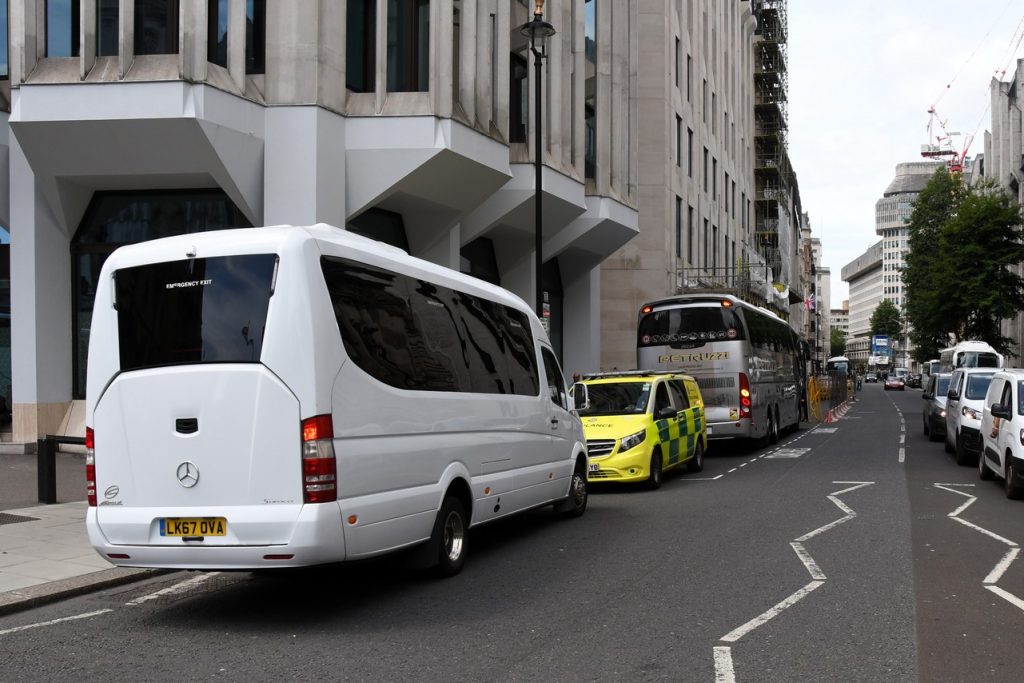
Disruption from other agencies
On a sunny Wednesday in June, routeone spent the day in central London watching what was happening and talking with a few coach drivers.
In Tothill Street, a Tactical Response Unit belonging to the London Ambulance Service had chosen to park in part of the bay nearest to Victoria Street whilst the paramedics had their sandwiches. Yes, they have to park somewhere, but it wasn’t helping. Coaches were using Tothill Street as the pick-up point for tourists returning from the Changing of the Guard.
Sadly, on the opposite side of the road, where there are no coach parking bays, a full-size coach had parked in a space marked for disabled parking only. The coach was picking up a group, but it was noted there for around 20 minutes, with its engine idling throughout.
On Embankment, where the coach parking bays at the Westminster Bridge end normally offer spaces for around 12 coaches, the Metropolitan Police Commercial Vehicle Unit had commandeered some five spaces to carry out vehicle checks. Further up towards Westminster Bridge and one space was being used by contractors marshalling construction traffic to a nearby building.
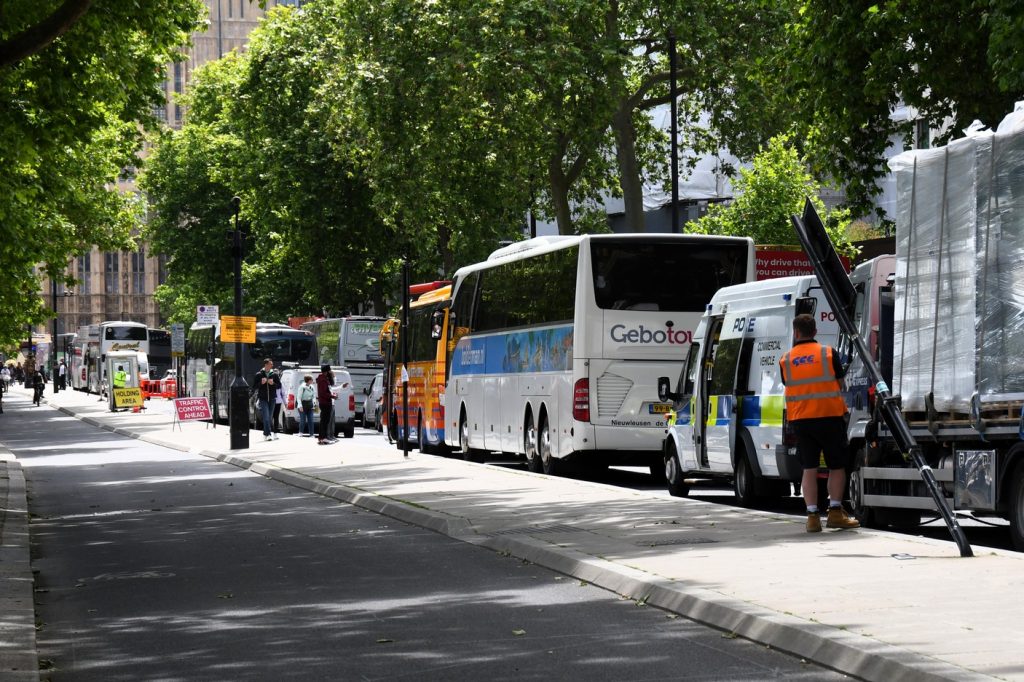
In Kingsway, the 10 bays leading northbound from Aldwych up to Kemble Street were in constant use, as were the bays on the southbound side. The messaging about not parking on any TfL bus stop in Aldwych has clearly been received, although not by a Clermont Ferrand, France-based coach that had parked on the stop nearest to Strand.
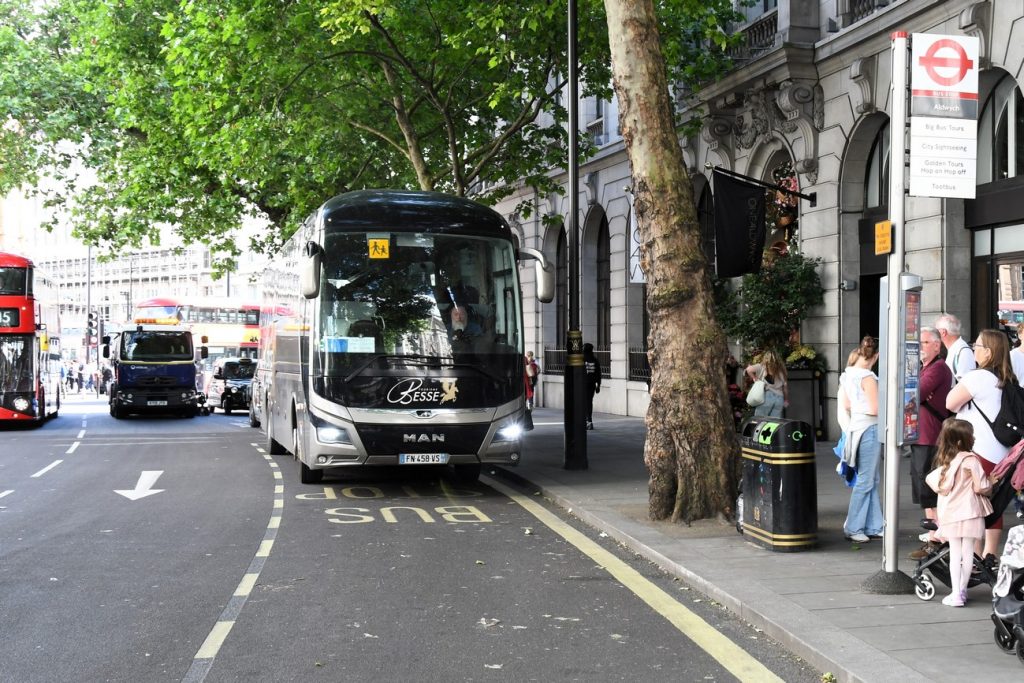
Park and pay the fine
Talking with coach drivers, the same concerns were expressed.
David, a driver with RDH Coaches of Haywards Heath in West Sussex, said that drivers shouldn’t have to choose between a fine (for illegal parking) or contravening drivers’ hours regulations (driving around trying to find a legal space to drop off or park).
“We don’t have this much trouble in continental European cities,” he said. “New drivers don’t want to come to London and risk losing pay because of possible fines. It’s important to sit down before you come to London and have a plan, and a plan B, even a plan C. The online information on the TfL website needs updating too. We’re forever trying our luck.”
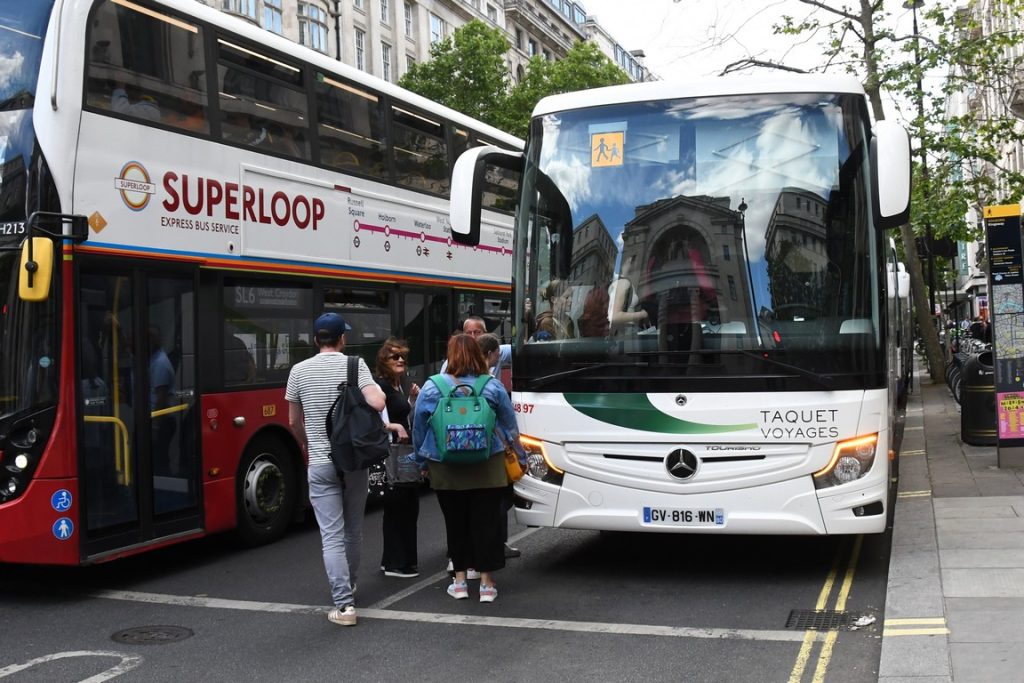
A driver working for a Birmingham operator carrying inbound visitors to the UK echoed the comments about drivers not wanting to do London work.
“Sometimes you just have to park and pay the fine as you can’t risk going over your hours,” he said. “An hours infringement could mean losing your licence. Of course, every driver I know wants to avoid that.”
On Embankment, a driver with Cambridge Coaches explained that he’d driven up and down a few times before finding the space. “The Met Police activity hasn’t helped today,” he said.
Overall, the comments from drivers demonstrated a resignation that the situation is what it is. But all of those spoken to indicated they pay when on a metered bay and they switch their engines off once parked. Apart from that one coach in Tothill Street, no engine idling was observed all day.
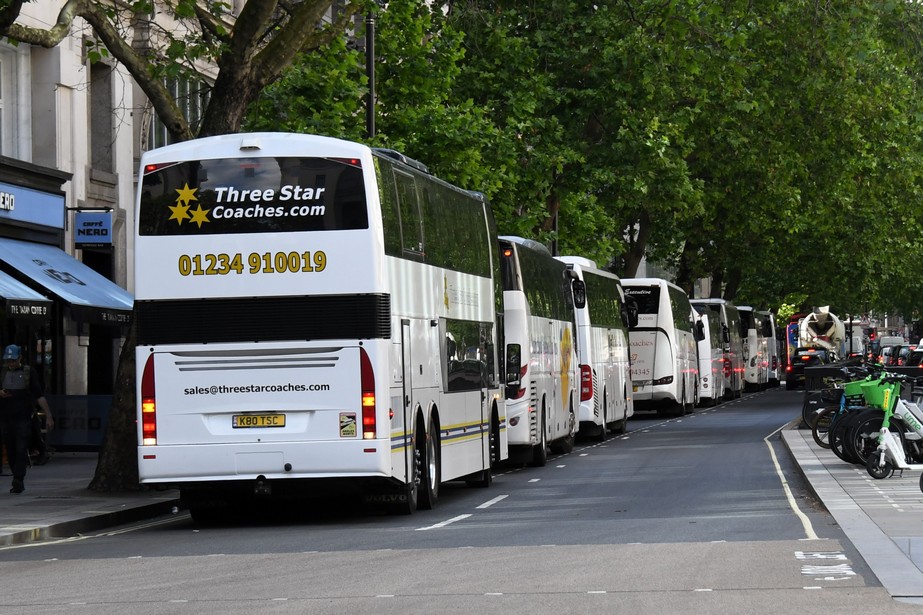
Playing the part, responsibly
As you would expect on this issue, all three industry trade bodies are saying the same thing.
Peter Bradley, Managing Director of UKCOA, notes that WCC is fighting for the coach industry corner. “The understanding and support is there but the industry has to act correctly to provide the information needed to support that,” he says. “A TfL statistic shows that less than 1% of people coming into London do so by coach. That’s not surprising, but when it comes down to TfL and WCC prioritising resources, the coach industry really needs to be demonstrating it is acting responsibly. We need to be paying our way.”
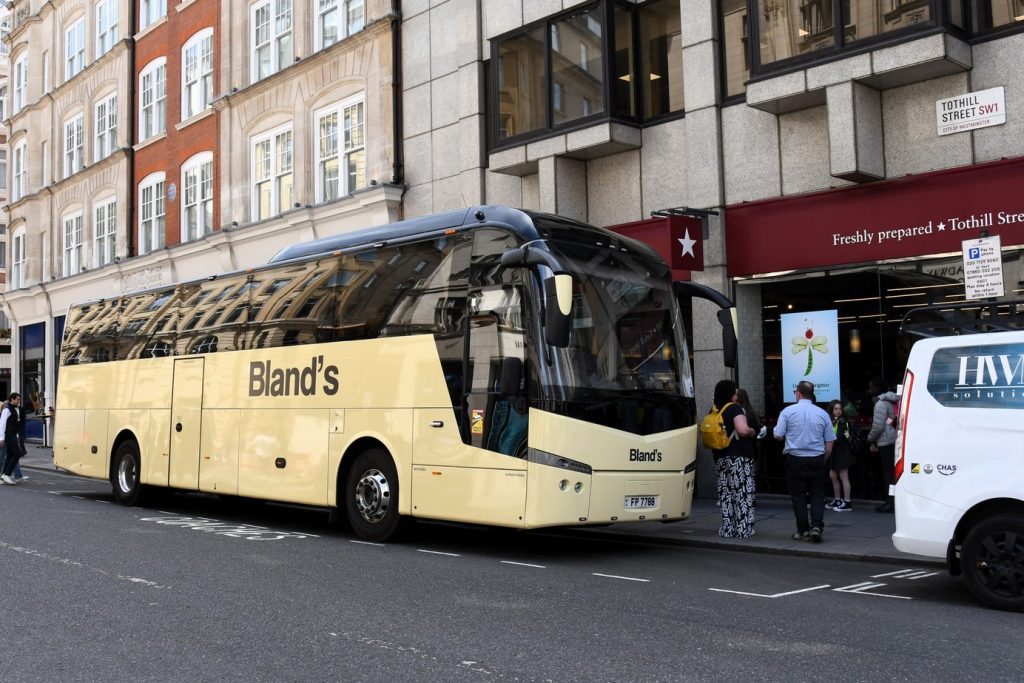
Phil Smith, UK Coach Manager with CPT, says that the trade body continues to remind drivers and operators of the need to act responsibly.
“In the main, drivers are behaving responsibly,” he says. “But with demand for bays outstripping the number of bays available, we don’t want to lose any facilities.”
Andy Warrender, RHA Operations Manager – Coach Sector, echoes that point. “The majority of coach operators do act responsibly,” he says. “But where operators and drivers don’t stick to the rules, the consequences could result in parking bays being removed, and that’s not something the industry wants or needs. The collective approach of the three trade bodies, together with CTA, in engaging with TfL and WCC, is the right way forward.”
A year on and all those engaged in finding solutions are of a positive mind. It does seem that there’s a need for TfL’s online guidance to coach parking to be updated, but what’s needed now, apart from the industry doing its best to ensure no more existing coach parking bays are lost, is to find ways to actually increase the number of coach drop-off and parking bays. A re-purposing of lightly used bus stops, perhaps with time restrictions on their use by coaches, could be one answer.




















